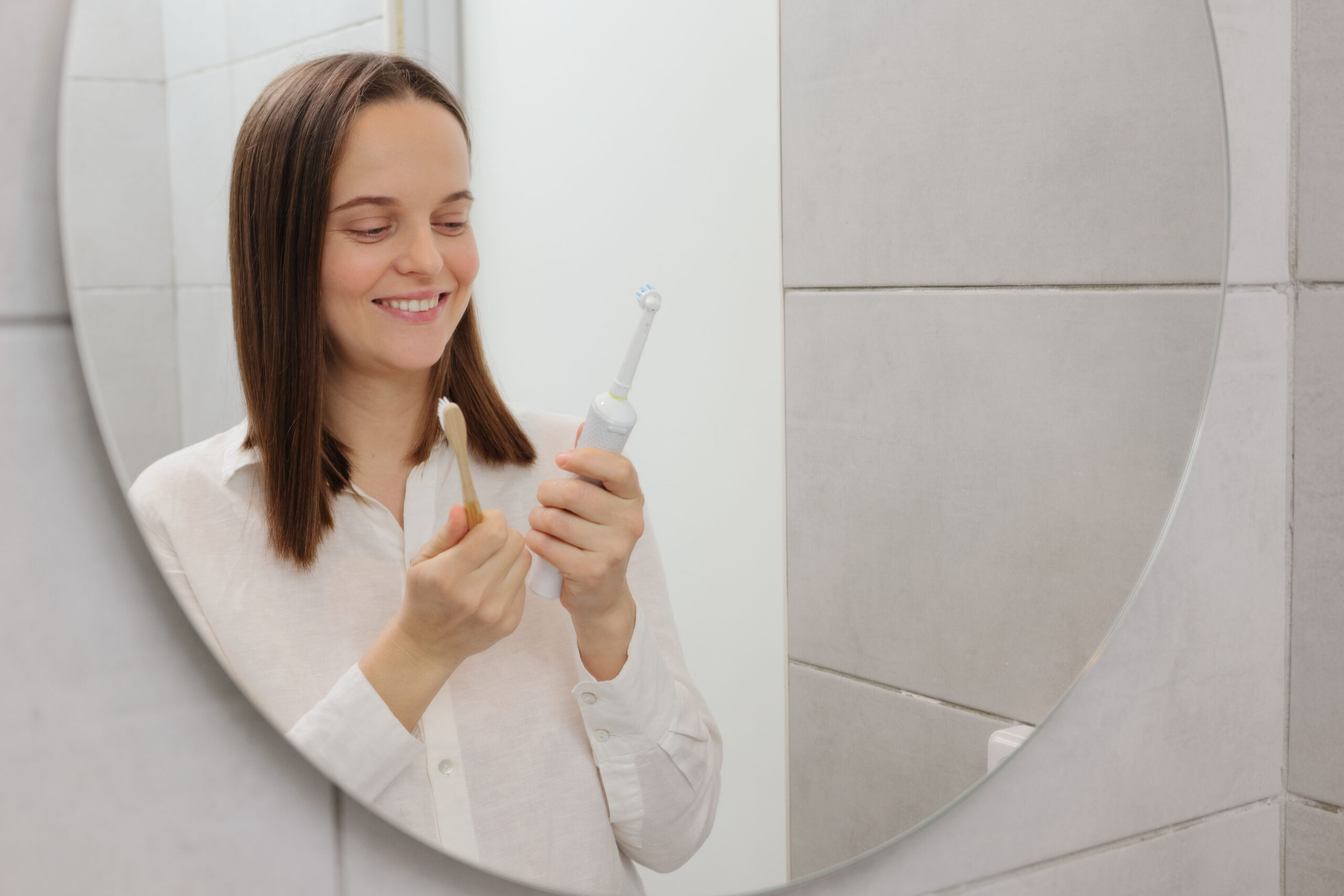Toothbrush: Differences Between Electric and Manual
Choosing the right toothbrush is one of the most important steps in maintaining a healthy smile. Your toothbrush is one of the key tools in your oral hygiene routine. With so many options available, it can be challenging to decide between an electric toothbrush and a traditional manual one. Both have their own advantages, and the best choice depends on individual needs, preferences, and oral health goals.
Understanding the key differences between electric and manual toothbrushes can help you make an informed decision about which one is right for you.
In this blog post, the Brandon Smiles Dentistry team will explore the benefits and drawbacks of both types, discuss which might be better for certain individuals, and provide insight into how to maintain a strong oral hygiene routine.
The Basics of Manual Toothbrushes
Manual toothbrushes have been around for centuries and remain a popular choice for many people. They are simple, affordable, and widely available in different shapes, sizes, and bristle types. A manual toothbrush does not require batteries or charging, making it a convenient option for travel and daily use.
Using a manual toothbrush effectively requires proper technique. The key is to brush for at least two minutes twice a day, using gentle circular motions to clean all surfaces of the teeth. Since a manual toothbrush does not provide automatic movement, it relies entirely on the user’s brushing habits to ensure effective plaque removal.
While manual toothbrushes can be just as effective as electric ones when used correctly, they require more effort to achieve optimal results. Many people tend to brush too hard or too quickly, leading to less thorough cleaning and potential gum irritation.
The Basics of Electric Toothbrushes
Electric toothbrushes have gained popularity in recent years, largely due to their ease of use and effectiveness in removing plaque. These toothbrushes use automated movements (either oscillating, rotating, or sonic vibrations) to clean the teeth with minimal effort.
One of the biggest advantages of an electric toothbrush is its ability to provide consistent brushing motions, ensuring that each area of the mouth receives equal attention. Many models also come with built-in timers to help users brush for the recommended two minutes, reducing the chances of under-brushing.
Electric toothbrushes can be particularly beneficial for individuals who struggle with dexterity, such as young children, older adults, or those with arthritis. The automated movements require less manual effort, making it easier to maintain good oral hygiene.
Additionally, studies have shown that electric toothbrushes may remove more plaque and reduce gingivitis more effectively than manual ones. The extra power and precision help reach difficult areas, promoting overall gum health.
Manual vs Electric Toothbrushes
Cost and Accessibility: Which is More Affordable?
When considering the cost of a toothbrush, manual brushes are the clear winner in terms of affordability. A standard manual toothbrush typically costs only a few dollars, and since dentists recommend replacing toothbrushes every three to four months, they remain a budget-friendly option.
Electric toothbrushes, on the other hand, come with a higher upfront cost. Prices vary depending on the brand and features, with basic models being relatively affordable and high-end versions costing significantly more. Additionally, replacement brush heads must be purchased every few months, adding to the overall expense.
Despite the higher price, many people find the investment in an electric toothbrush worthwhile due to its added convenience and effectiveness. Some dental professionals even recommend electric toothbrushes for individuals who are prone to plaque buildup or gum disease.
Which Toothbrush is Better for Gum Health?
Gum health is a major factor in overall oral hygiene, and both electric and manual toothbrushes can be effective in preventing gum disease when used correctly. However, electric toothbrushes have an advantage in providing gentle yet thorough cleaning.
Because many people brush too hard with a manual toothbrush, they risk causing gum irritation and even recession over time. Electric toothbrushes, especially those with pressure sensors, can help prevent excessive force while still ensuring proper cleaning.
For individuals with sensitive gums or a history of gum disease, an electric toothbrush may be a better option. It allows for a more controlled brushing experience while effectively removing plaque along the gumline.
Ease of Use and Convenience
Convenience plays a significant role in daily oral hygiene habits. Manual toothbrushes are easy to use and require no charging, making them a hassle-free option for people who prefer a simple routine. They are also lightweight and easy to pack for travel.
Electric toothbrushes require charging or battery replacement, which can be a drawback for those who frequently travel or forget to charge their devices. However, many models have long battery life, allowing for multiple uses before needing a recharge.
For individuals who struggle with mobility issues or find it difficult to use a manual toothbrush properly, an electric toothbrush can make brushing significantly easier and more effective.
Which Toothbrush Should You Choose?
Ultimately, the choice between an electric and manual toothbrush depends on individual preferences and oral health needs. If cost, simplicity, and portability are top priorities, a manual toothbrush may be the best option. However, for those looking for convenience, enhanced plaque removal, and better gum protection, an electric toothbrush can provide added benefits.
Both types of toothbrushes are effective when used properly, and the most important factor is consistency. Brushing twice a day, flossing, and visiting the dentist regularly are the key steps in maintaining a healthy smile.
Toothbrush Recommendations at Brandon Smiles Dentistry
At Brandon Smiles Dentistry, we believe that good oral hygiene starts with the right tools and habits. Whether you choose a manual or electric toothbrush, the most important thing is to brush regularly and use proper technique. If you’re unsure which type of toothbrush is best for your oral health needs, our dental team can provide personalized recommendations during your next visit.
If you have questions about your brushing routine or need a professional cleaning, schedule an appointment with Brandon Smiles Dentistry today.

